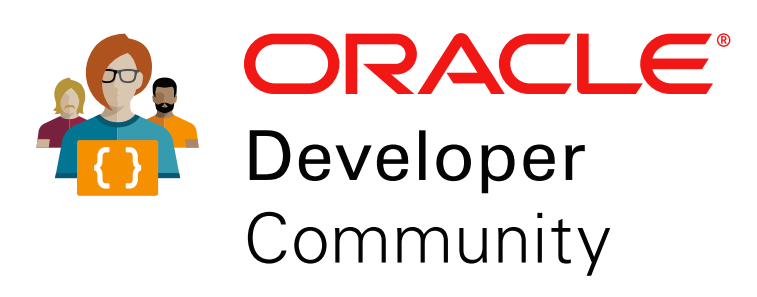It’s that time of year where we say #ThanksODC…

History
Back in the day we had a community site called Oracle Technology Network (OTN), which is why the first incarnation of this event was called #ThanksOTN. Later OTN got re-branded as Oracle Developer Community (don’t call it ODC 🙂 ), so last year we got #ThanksODC. That confused a few people, as they thought this was about the Oracle Developer Champions, Oracle Database Cloud, Oracle Developer Cloud or some other such stuff. It wasn’t. Some people didn’t identify as developers, so thought it was not for them. None of that is true. It’s pretty simple. I can’t image there is anyone working with Oracle technology that hasn’t used forums, read articles or downloaded Oracle software from OTN/ODC over the years. You must have directly, or indirectly, benefited from the work done by the people at Oracle who support our community. This is just an opportunity to say thanks to those brave folks who endure our endless moaning. 🙂
When is it?
Every year I pick a date and have to change it because of a national holiday on some country. 🙂 At the moment the date of the event is in two weeks time on Thursday 11th October 2018.
Check back closer to the time to make sure the date hasn’t changed. If we have to move it, it will only be by a day either side.
How can I get involved?
Here is the way it works.
- Write a blog post. The title should be in the format “ODC Appreciation Day : <insert-the-title-here>“.
- The content can be pretty much anything. See the section below.
- Tweet out the blog post using the hashtag #ThanksODC.
- Publishing the posts on the same day allows us to generate a buzz. In previous years loads of people were on twitter retweeting, making it even bigger. The community is spread around the world, so the posts will be released over a 24 hour period.
- Oracle employees are welcome to join in. I’m happy for you to post about a feature of your product you think adds value, but please don’t just do a sales pitch for your product. 🙂
- As always, you are not allowed to call me a kiss-ass, then subsequently join in. 🙂
Like previous years, it would be really nice if we could get a bunch of first-timers involved, but it’s also an opportunity to see existing folks blog for the first time in ages! 🙂
The following day I write a summary post that includes links to all the posts that were pushed out through the day. You can see examples of the last two here.
What Should I Write About?
Rather than having an individual theme, which can exclude some people, this year you can write about whatever you want. Here are some suggestions that might help you.
- My favourite feature of {the Oracle-related tech you work on}.
- How I got started using Oracle technology.
- My biggest screw up, and how I fixed it.
- How the cloud has affected my job.
- What I get out of the Oracle Community.
- What feature I would love to see added to {the Oracle-related tech you work on}.
- The project I worked on that I’m the most proud of. (Related to Oracle tech of course)
It’s not limited to these. You can literally write about anything Oracle-related. The posts can be short, which makes it easy for new people to get involved. If you do want to write about something technical, that’s fine. You can also write a simple overview post and link to more detailed posts on a subject if you like. In the previous two years the posts I enjoyed the most were those that showed the human side of things, but that’s just me. Do whatever you like. 🙂
So you have two weeks from now to get something ready!
Cheers
Tim…
 Having spent time playing on the
Having spent time playing on the  A couple of incidents/discussions happened recently that made me think about this topic again. Here are some random thoughts on a subject that should definitely not be approached in a random manner. 🙂
A couple of incidents/discussions happened recently that made me think about this topic again. Here are some random thoughts on a subject that should definitely not be approached in a random manner. 🙂 It’s just my opinion, but I think the days of the single discipline user group conference are numbered…
It’s just my opinion, but I think the days of the single discipline user group conference are numbered…
 I was watching a rerun of X Factor at my brother’s house at the weekend. Most of the time I was wincing at all the bum notes sung by the people the judges were saying were fantastic, or wincing at everyone who was doing it for their { mom | dad | grandma | grandad | dead parrot } in an attempt to get me emotionally invested. Apart from all that cringe, the other thing I noticed was people saying things like,
I was watching a rerun of X Factor at my brother’s house at the weekend. Most of the time I was wincing at all the bum notes sung by the people the judges were saying were fantastic, or wincing at everyone who was doing it for their { mom | dad | grandma | grandad | dead parrot } in an attempt to get me emotionally invested. Apart from all that cringe, the other thing I noticed was people saying things like, I’m in a really privileged position where I’ve spent over a decade speaking at events all over the world. That has been made possible by being part of the Oracle ACE Program, and more recently the Oracle Developer Champion program, who have provided funding for some of the events I’ve participated in.
I’m in a really privileged position where I’ve spent over a decade speaking at events all over the world. That has been made possible by being part of the Oracle ACE Program, and more recently the Oracle Developer Champion program, who have provided funding for some of the events I’ve participated in. I just noticed KeePass 2.40 was released a couple of days ago.
I just noticed KeePass 2.40 was released a couple of days ago. This question comes back to haunt me all the time, and did again last weekend, so for the sake of a few minutes here’s my opinion…
This question comes back to haunt me all the time, and did again last weekend, so for the sake of a few minutes here’s my opinion…